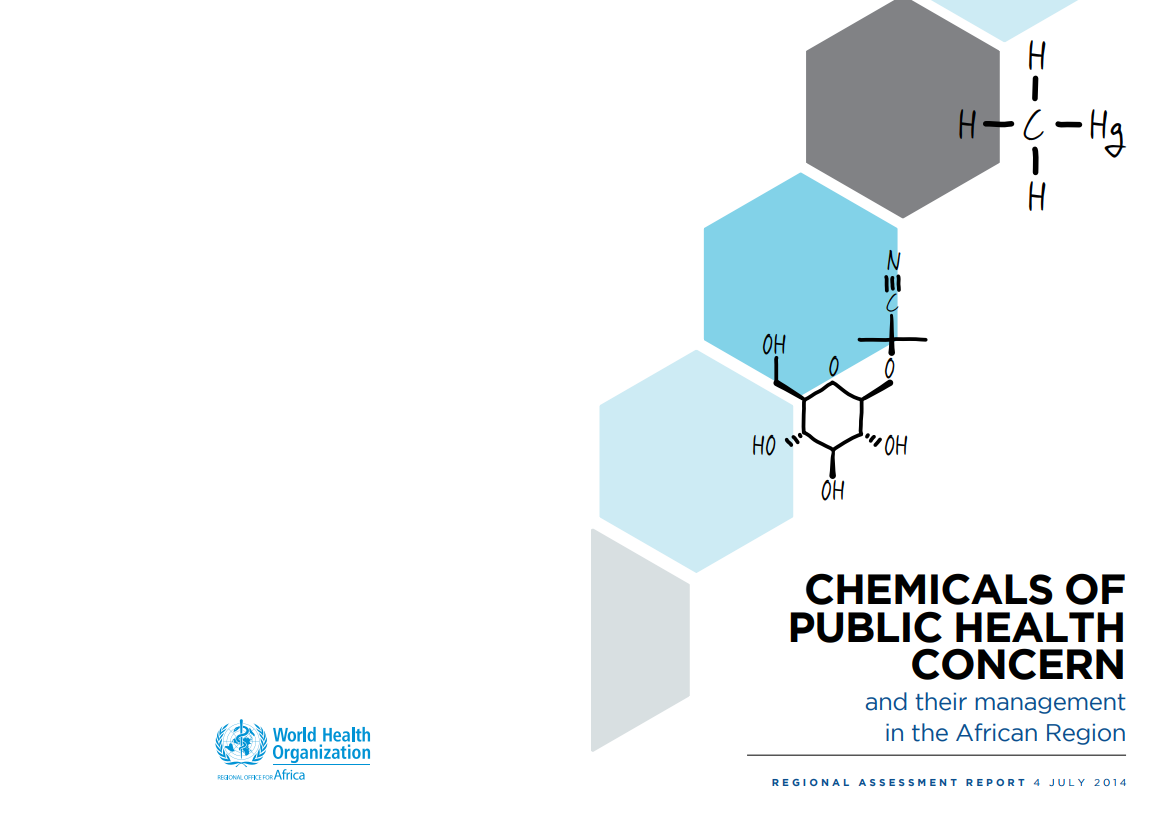
Chemicals of public health concern in the African Region and their management: Regional Assessment Report
This report presents the outcome of a regionwide, comprehensive assessment of chemicals and their management in the WHO African Region. It describes the main chemicals of public health importance and their health impacts and management processes at the country level.
Chemicals have both beneficial and negative effects on human health. They are a part of everyday life, being essential to the growth and sustainability of our communities. Today, chemicals are increasingly used to foster the prosperity of a range of economic sectors including health, agriculture, mining, education, research and many industrial processes. However, while chemicals provide benefits, they can also have harmful effects if not managed properly.
Communities, whether users or non-users of chemicals, may be exposed to their contamination as a result of ignorance of their associated risks, failure to employ protective measures in their use and ineffective implementation and enforcement of safety regulations for their storage, transportation and disposal.
Chemicals of public health concern such as heavy metals – including lead and mercury – persistent organic pollutants and highly hazardous pesticides that are either controlled or have been withdrawn from use in developed countries continue to be employed in Africa with major environmental and human health impacts.
Illegal dumping of chemicals remains a prevalent issue in their management in Africa. A great deal of work remains to be done, therefore, to ensure environmentally sound management of toxic chemicals while at the same time embracing the principles of sustainable development and improvement of the quality of life for humankind.
Effective education on chemical use and health risks, rigorous enforcement of safety regulations and national and international legislation including multilateral environmental agreements, training of customs and law-enforcement officials, and stepping up of border surveillance to curb both importation of obsolete chemicals and clandestine movement of hazardous chemicals and waste must be treated by Member States in the African Region of the World Health Organization (WHO) and partners as urgent priorities now and addressed consistently.


